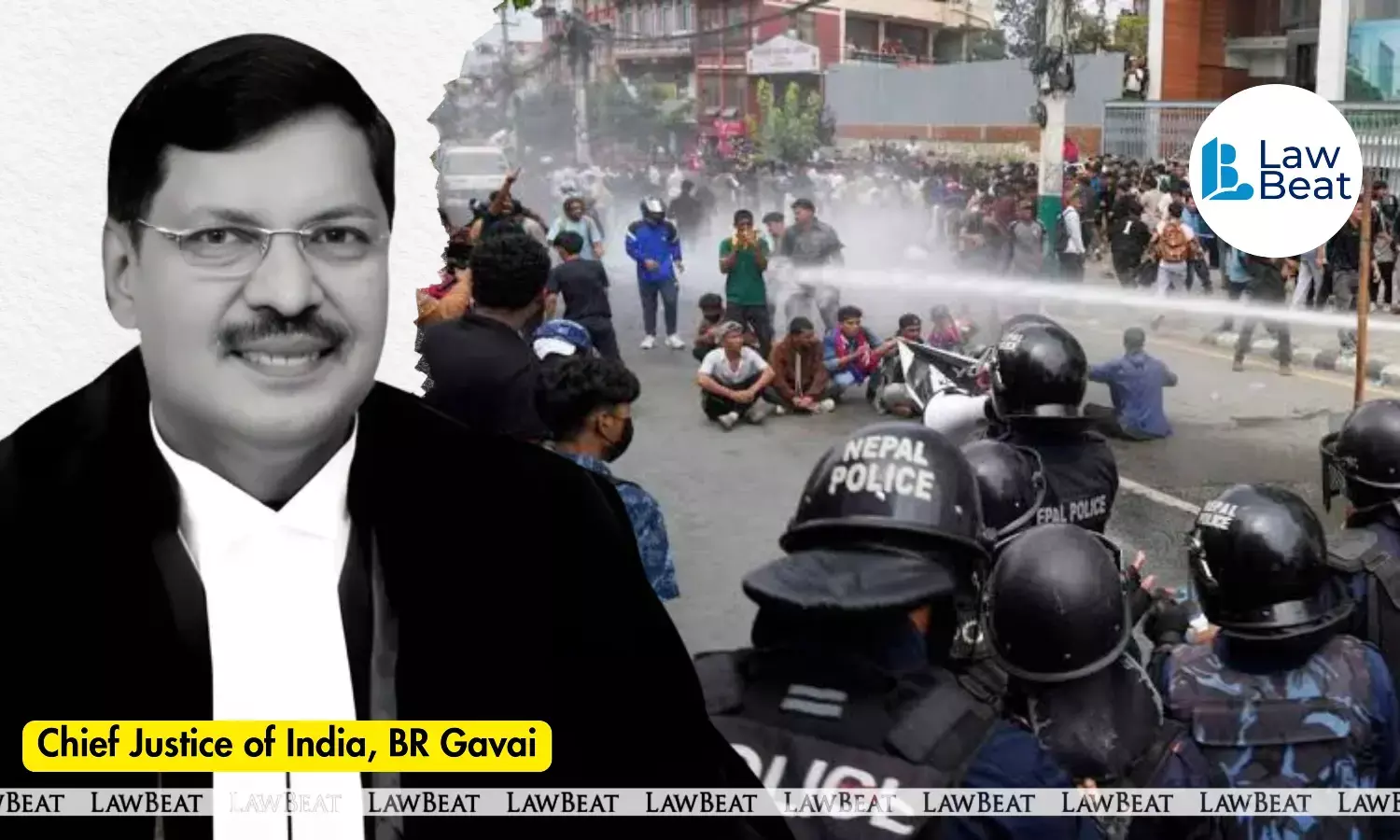CJI Gavai Expresses Distress Over Nepal Unrest as Protests Turn Violent, Calls for Peace at Buddha’s Birthplace

CJI Gavai expressed concern over Nepal’s violent protests
Chief Justice of India (CJI) Justice B.R. Gavai on Wednesday voiced grave concern over the escalating crisis in Nepal, where unprecedented protests have engulfed the Himalayan nation, resulting in the resignation of the prime minister, the torching of Parliament, and the deaths of at least 19 people in a crackdown.
Speaking to NDTV shortly after his return from a family visit to Kathmandu and Lumbini; the sacred birthplace of Lord Buddha, Justice Gavai said he was “distressed by the situation” unfolding in the neighbouring country.
“I am very disturbed to see what is happening in Nepal. I visited this great country and came back on Sunday only. I pray and hope everything will be fine at Buddha’s place soon,” he remarked.
The Chief Justice, accompanied by his family, visited Lumbini over the weekend, only to return to India before demonstrations against the government erupted into the worst violence Nepal has witnessed in two decades. His comments come against the backdrop of Nepal’s democratic institutions struggling under intense public anger and a sudden leadership vacuum.
The demonstrations began Monday (September 8) in Kathmandu, triggered by the government’s ban on social media platforms and fueled by public anger over entrenched corruption. The movement, primarily youth-driven and calling itself the “Gen Z movement,” quickly spread across the country.
While initially directed at the clampdown on online expression, the protests soon expanded into a wider expression of discontent, with protesters targeting what they termed “nepo kids”, children of political leaders who enjoy privilege and affluence while the majority of young Nepalis face unemployment and limited opportunities.
Within days, peaceful demonstrations gave way to nationwide fury. Government buildings, including Nepal’s Parliament, were set ablaze. Violence escalated further after security forces opened fire on protesters, killing at least 19 people. The crackdown only intensified public outrage, leading to scenes of chaos and destruction in the capital and beyond.
Videos circulating on social media added to the shock, showing former prime minister and current Nepali Congress leader Sher Bahadur Deuba, along with his wife and sitting foreign minister Arzu Rana Deuba, being assaulted by demonstrators. Both appeared visibly injured and bleeding, while other footage showed Deuba being escorted to safety.
With the Prime Minister resigning amid mounting pressure, the Nepali Army stepped in to enforce order. Armoured personnel carriers patrolled city streets littered with the charred remains of vehicles and government offices, while loudspeakers blared curfew orders to the civilian population.
General Ashok Raj Sigdel, Chief of the Nepali Army, made a public appeal urging protesters to “call it off and engage in dialogue.” Despite these calls, the streets remained tense, with negotiations between protest representatives and army officials failing to yield a breakthrough.
Leaders of the youth-led protest movement have proposed the establishment of an interim government to restore public trust and stability. In a significant move, Rehan Raj Dangal, a representative of the protesters, announced that they had suggested the name of Sushila Karki, Nepal’s only female Chief Justice of the Supreme Court, to head the interim administration.
Justice Karki, who served as Chief Justice between 2016 and 2017, is remembered as a popular and reform-oriented figure. Her potential appointment is being viewed as a step towards bridging the trust deficit between the political establishment and the protesting masses.
The turmoil in Nepal, which shares deep historical, cultural, and religious ties with India, is being closely watched in New Delhi. For the Chief Justice of India, who had just returned from Nepal, the crisis also has a personal dimension, given his recent visit to Lumbini, revered globally as the birthplace of the Buddha and a symbol of peace.
